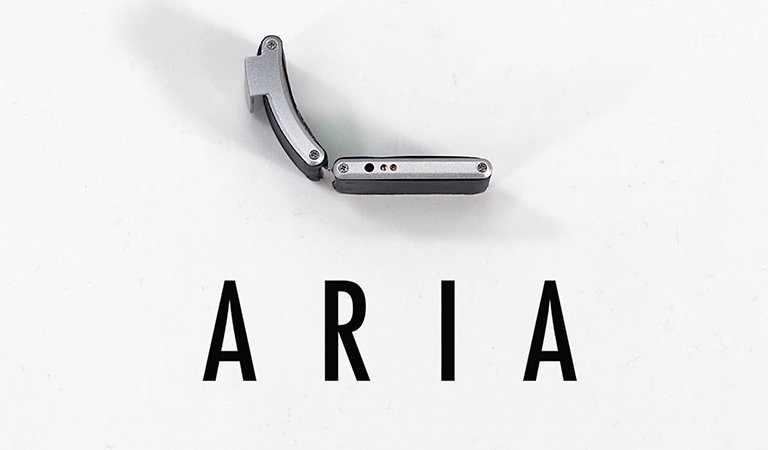Tech of the Week: time to stop using your nose to control your shiny new smart wearable

Current day smart watches all use touch screens to control the device, voice commands that occasionally work, and, if you’re really desperate, totally on-the-out buttons.
Now there’s a fourth method: the Deus Ex Aria.

The Aria is answering a problem that not quite everyone is even aware of yet – how do you operate the tiny computer strapped to your wrist if your other hand is occupied? Gesture control, apparently, by way of measuring movement in the tendons of your wrist.
The company behind the Aria, Deus Ex (nothing to do with the game, folks), claim that the tech will be able to accurately measure what your hand is doing, even through sweat and tattoos, and the “simplicity” of the technology, means it’s small and comfortable too.
Sensors on the Aria can currently analyse 20 different movements, such as flicking your thumb or balling your fist, as well as a series of combinations. Gestures can be assigned to individual actions on the smart watch through an initial calibration session that is defined by the user.
Aiming for a release date of June 2016, there will be two versions of the device, with a clip for Android Wear and a dedicated smart strap for the Pebble Time. The clip for Android will be Bluetooth enabled with a dedicated battery, which currently last more than 24 hours of continuous activation.
On the other hand, the Pebble strap will take advantage of the wired serial port that’s available, at the cost of 15% less battery life, but discounting the need for an on-board battery module. The company says they’re still actively working to reduce battery use, which means it could suck less life out of the Pebble come June next year.
At the same time, the Android clip will also have its SDK made available for developers to toy with connecting their apps to the gesture functions.
Deus Ex has launched a Kickstarter campaign with a pledge goal of US$100,000, which it has already surpassed at US$137,948 (NZ$206,605), with 12 days to go.
It’s fair to say that right now the smart wearable market is picking up at a rapid pace, and analysts are all saying it’s going to get even bigger. That translates to a giant potential market around smart wearables.
With Google’s Project Soli also doing something similar (using radar waves instead of monitoring tendon movement), gesture based control could be the way smart wearables will be headed in the future.
Currently, the Aria is available on Kickstarter until July 20. The Pebble Time strap will cost backers US$69 (NZ$103), while the Android clip costs US$129 (NZ$193).




